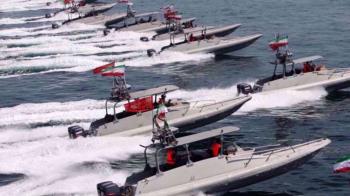Alwaght- Top Saudi Arabian regime officials have been smuggling narcotics into the kingdom during the annual Hajj pilgrimage season earning billions of dollars, a whistleblower has revealed.
According to a report published by The Independent, Major Turki bin Hamza al-Rashidi, who worked in the Saudi Interior Ministry’s Narcotics Control Division, says that a network of powerful regime insiders has made “billions” from smuggling narcotics into the kingdom.
In several Youtube messages, Major Rashidi says that one method is the “twin buses game”. This involves a “clean bus” full of pilgrims heading for Mecca to perform the Hajj being certified by customs, before the same documentation is later used to allow a “dirty bus” laden with drugs to enter the kingdom.
Major Rashidi claims the scam has been running for decades, with hundreds of buses making thousands of trips.
The dirty narcotics earnings enter the kingdom’s financial system under the guise of legitimate income arising from the pilgrimage, the whistleblower notes.
Major Rashidi adds that he uncovered evidence that implicated senior officials in the “bus scam”. But when he passed on the dossier, a campaign of intimidation was started against him and he was transferred to work on Saudi Arabia’s remote northern border. He alleges that he was later sacked and subjected to trumped up charges and is currently in detention.
This is not the first time, Saudi rulers have been mentioned in connection with illicit drugs trade.
Last October, Saudi Prince Abdel Mohsen Bin Walid Bin Abdulaziz and four other Saudis were arrested at the Beirut airport on October 27, after nearly two tonnes of Captagon capsules and cocaine were found waiting to be loaded onto their private jet.
Lebanese security found 40 suitcases full of more than 2000 of amphetamine pills and cocaine on the prince’s private plane, which was on its way to Saudi capital city Riyadh. Security officials say that was the largest smuggling operation ever foiled by Beirut International Airport security.
In 1999, Saudi Prince Nayef bin Sultan bin Fawwaz al-Shaalan allegedly smuggled two tons of cocaine from Venezuela to France. Now believed to be living under legal shelter in Saudi Arabia, Prince Nayef was accused by France of using his diplomatic status to sneak the drugs onto a jet belonging to the Saudi royal family. He managed to escape his sentencing and was convicted in absentia in 2007. The United States also indicted him with conspiracy to distribute cocaine.
In 2010, a leaked WikiLeaks cable described a royal underground party scene in Jeddah that was “thriving and throbbing” because Saudi officials looked the other way. The dispatch described a Halloween party, funded in part by a prince from the Thunayan family, where more than 150 young men and women dressed in costumes and slogged expensive alcohol, which is sold only on the black market in Saudi Arabia. “Though not witnessed directly at this event, cocaine and hashish use is common in these social circles,” the cable read.
Last May, Mujtahid, a prominent Saudi political activist has revealed Saudi Crown prince Mohammad Bin Nayyef is one of the major narcotics dealer in the kingdom apart from being an addict himself. Mujtahid, added that the major drug kingpins in Saudi Arabia are influential figures in ruling Al Saud clan. "Bin Nayef has been treated several times in Europe," Mujtahid's tweets read.
"The drug dealing crimes that reported and prosecuted in Saudi Arabia are 10% only of the total offenses which are dominated by prominent Al Saud figures." The penalty for drug trafficking in Saudi Arabia is death.
Mujtahid's tweets were in the context of his comments on the arrest of a whistleblower security officer who had the audacity to say that there is an influential group that is involved in the drug dealing crimes. "This group is close to Bin Nayef," he tweeted.



























